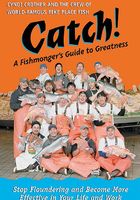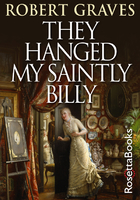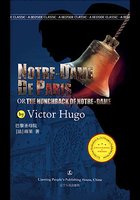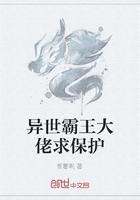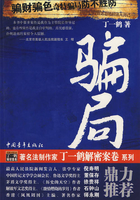HERE IS MY grandfather, Charlie Spillane, driving up O'Connell Street towards his future wife in the Belvedere Hotel.
It is half past ten on a Tuesday night. It is Lent. A few profane couples drift out of the Gresham or the Savoy Grill to take the tram or start the walk home, but otherwise the town is quiet. Charlie's car is a thick grey and when it slips under a streetlamp a pool of blue leather opens to the night. The hood is down, the brasses gleam and Charlie's head gleams. It is a beautiful thing, this car – which is not quite Charlie's car: though he has had it so long we can assume the man who left it with him is not coming back.
This is the car that lived in Ada's garage when I was a child, a Bullnose Morris, with a cracked old hood, like the hood of a giant pram. By the time I saw it, there wasn't much of it left, even the doors were missing. I used to sit in the front seat and listen to the mice running through the engine, in the stillness of the summer afternoons.
Or, 'Vroom vroom!' Liam would say, beside me. 'Vroom vroom.'
In 1925 the car is still a beautiful thing. Charlie revs it along with tremendous shifting of gears and pedals – Nugent thinks he shouldn't be driving it at all, so ruinous is this pumping, grinding technique to clutchsprings and valves. The front brakes are split open in a pool of their own fluid, on a table in his digs – Nugent is not the owner of the car either, but he does love it. Standing in the foyer of the Belvedere Hotel, he listens for the engine without knowing what he is listening for. Charlie, meantime, is running about Dublin on the back brakes only, seeing a man about a dog.
He is a swerver, Charlie. He does not like endings. He does not even like beginning things. When he does fall in love it is only because he finds that it is already slipping away from him. He grabs Ada, in other words, just at the moment that she turns to go.
But Ada does not know Charlie yet. Ada Merriman stands in the foyer of the Belvedere Hotel and looks at Lamb Nugent, while outside, Charlie Spillane cruises into Great Denmark Street, towards the wife he has not yet met. He is about to pull in at the door of the Belvedere Hotel, he is nearly there, when the spire of the Findlater's Church puts him in mind of something, and he roars off to the The Hut in Phibsboro, to see a man about a dog.
Nugent cocks an ear after the escaping motor. There is a pause as the engine fades, and then the silence starts to spread. It seeps into the foyer of the Belvedere; the distant rustle of streets turning over from day into evening, as the night deepens and the drinking begins – elsewhere. As women shush their babies, and men ease their feet out of boots, and girls who have been working all evening wash themselves in distant rooms and check a scrap of mirror, before going out to work again.
On the other side of the room, Ada's breathing is so shallow and mild she might be an angel occupying, for the moment, the figure of a doll. Her throat is a pillar, as the poet might say, and her lips are sculpted shut in the light.
A spent coal slips in the grate with a whispering 'chink'.
Here come the dead.
They hunker around the walls and edge towards the last heat of the fire: Nugent's sister Lizzy; his mother, who does not like being dead at all. Nugent's ghosts twitter, soft and unassuaged, while Ada's make no sound at all.
Why is that?
She is an orphan. Of course.
A face appears at the front-door glass, and pushes open the door. A quick, pokey little face, with a beard. It looks around, and withdraws. The dead are scattered, but after a moment they start to return and, as though Ada can not bear it, she rises swiftly and walks over to the desk, where she rings the bell.
Ding ding!
They are standing beside each other – at last! – Ada and Nugent at the desk, and she is amused by it. The freedom and the ease of her is insult and provocation to Nugent – poor Nugent, who feels the eighteen inches between them more keenly than any other measure of air. Who would push any part of himself into any part of her and find relief in it. Who might put his hands into her belly, to feel the heat and slither of her insides.
Do not mock.
'This much,' he wants to say. 'I already love you this much.'
'Hello. Hello in there.'
The concierge swims out from the darkness of his back room.
'Do you have such a thing for the jarvey as a hot rum? For the man outside?' She turns to Nugent and says, 'I don't know why I do it for him, he's never there when you're looking. Only to stop him sneaking off I suppose.'
Then she walks back towards her chair by the door. She is only nineteen after all. And he is only twenty-three.
'I have a friend who owns a car,' he says, all of a sudden.
'Do you?' She stops; interested and pert.
'He should be here any minute, he should be here by now.'
'I'd love a go in a car,' says Ada. 'I'd be mad for a go in a car.'
And she swivels about to sit in her chair.
Oh for a rope to pull it from under her – Nugent skidding across the room to catch her in his arms. They could kiss in black and white, she turning away for the caption:
Stop!!
Because it is not only Lent, but spring. How else would you have it? Ada Merriman is beautiful and Lamb Nugent is no better than he should be, and this is all we need to know – that when she walked in through the door, and sat with such quiet grace on that little oval-backed chair, he saw a life in which no one owed anyone a thing. Not a jot.
A car pulls up outside. Nugent hears the engine's throbbing and the look he gives to Ada turns to one of pain and farewell – as if their situation were in some way impossible. But it is not impossible, and the alarm that flares between them now is just another kind of delight.
There is nothing that they do alone. Not any more.
Together they turn, as Charlie Spillane arrives through the door, raffish with drink, hearty with promises broken and appointments missed. His eye checks Nugent leaning up against the front desk – then he casts about him until he sees the figure in blue, sitting at the wall by the door. Oh.
'Ma'am,' he says, doffing his (imagined) bowler hat, 'I hope this fellow has been keeping you amused.'
And Ada laughs.
Just like that. With a sweep of his arm, Charlie has changed the maths of it – of his future and of my past.
Here are the two friends, leaving Ada Merriman.
Charlie indicates the hotel door to his pal and walks outside. He sits back into the Bullnose Morris and picks up his driving gloves. Then he rubs his face with them. He rubs his face as a man who has stopped crying, after crying for a long time. Nugent climbs in beside him. Charlie gives her some choke, struggles over the sharp hump of the forgotten chock, and drives on.
Conways is dark. They circle the Rotunda and stop back on Parnell Street where they find a lock-in in the back room of the Blue Lion – an unholy pub. There is an air of recent hurt; the smell of something burnt coming out of the jakes in the yard.
'A bottle and a lemonade,' says Charlie.
They taste their drink and look with circumspection at the murderous clientele of the Blue Lion. Charlie has a small opinion about the car while Nugent examines the grain of the wood and the shine of the low brass rail.
On the way home, Nugent tilts out of his seat to stand with his head a little higher than the car's front window, and he lets the night air lap his face. As they bowl along the Green, he glances at the girls who are waiting, even in Lent, for the nobs to come out of the Shelbourne: a series of white ovals, their faces twist around like turning leaves, at the sound of a car.
He plumps back into his seat as they slide to a stop, some distance beyond his door.
'Give it a look, will you?' says Charlie, meaning the brake drum, split open on the table in Nugent's digs.
'I will,' he says, and waves Charlie off at the front door.
Inside, Nugent looks around his little room; the narrow bed, the window, with two lace curtains like hair parted over a little square face and tied on either side. He looks at his small table – the broken brakes of the Bullnose Morris, beautiful as a picture of apples in the moonlight. He starts to unbutton his shirt, standing in the darkness. His shirt opens one button at a time. It parts in a V over the flesh of his chest. Further and further down. And Nugent is on his knees. He pulls off his shirt on his knees, and swings it around behind him, so the buttons hit his back, once, twice; and then he starts his night prayers.
Here she comes.
Lizzy.
His sister. Younger than him. She died. The room they grew up in was full of the wet rattle of her chest; the horrible gurgle of phlegm and the shocking bright blood. Nugent can not forget the nightly rosary, said at a terrible, safe distance from her bed; her white knuckles fumbling on the coverlet for the dropped beads, or the dark light in her eyes as she looked at him, like she saw right through to his bones. His own puberty going unnoticed – almost to himself – as her little breasts swelled under the nightdress. She moved towards death and womanhood at the same pace, the nipples like a spreading bruise, the breasts growing, and failing to grow, over lungs hard with disease. And so, she died.
Is that enough for him to think about, while he is on his knees?
That when he holds his penis in the night-time, it feels like her thin skin; always damp, never sweating. Because, in those days, people used to be mixed up together in the most disgusting ways..

